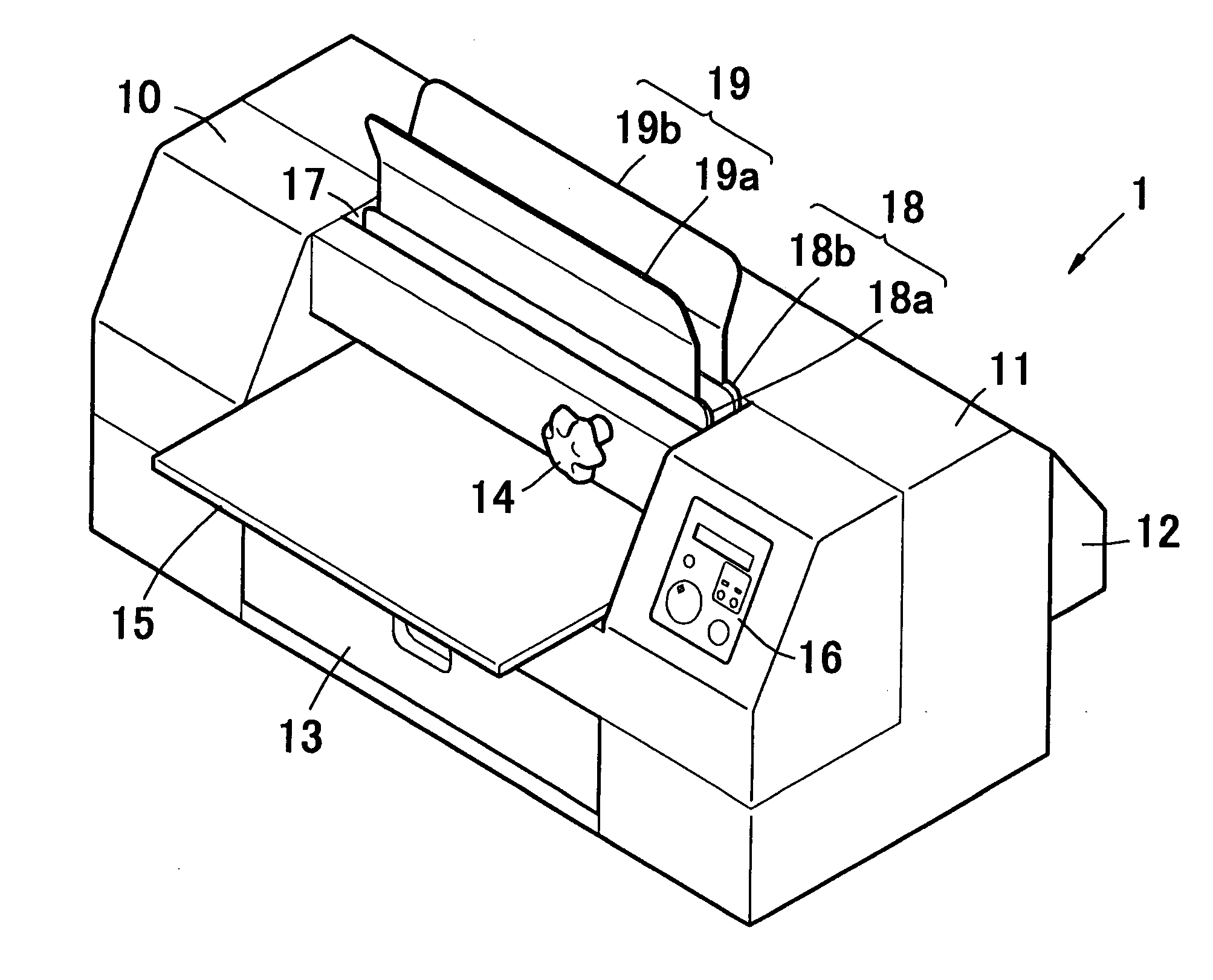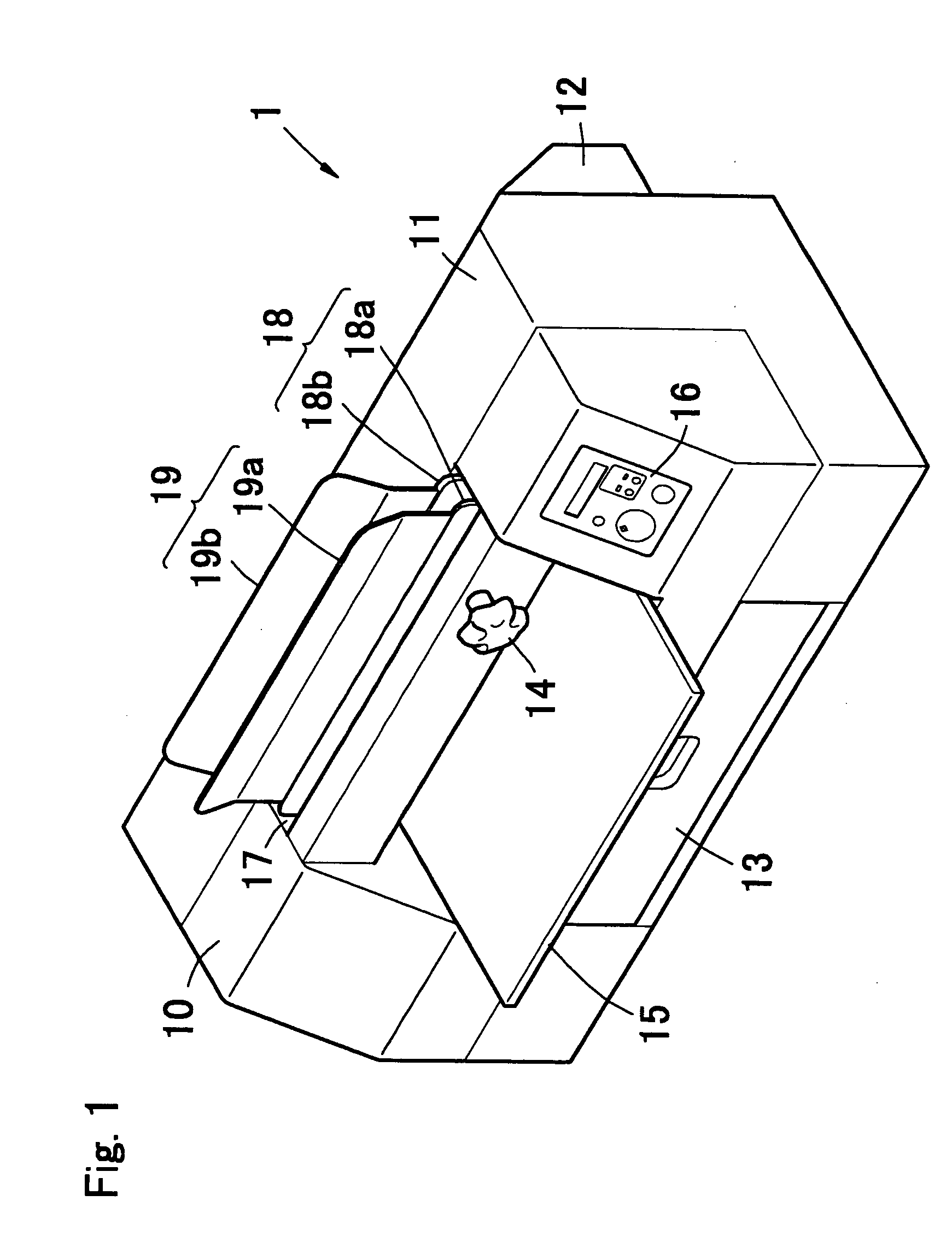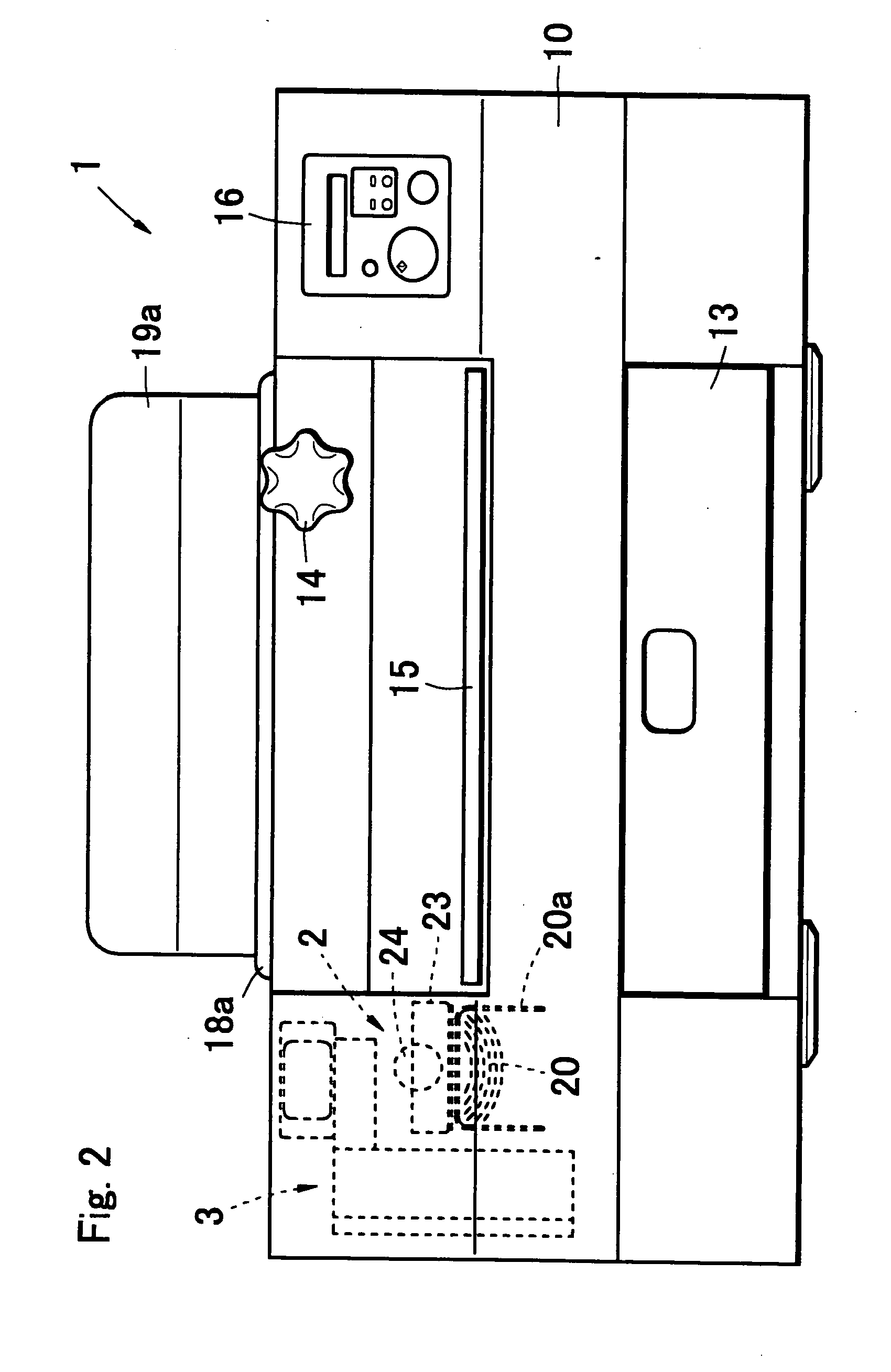Bookbinding apparatus
a book binding and book stack technology, applied in the field of compact and simple book binding apparatus, can solve the problems of degrading the finish of the book, the thickness of the sheet stack to be bound does not always fit the spine width of the cover, and the type of book binding apparatus cannot be used for pad binding, so as to achieve the effect of easy removal of excessive adhesiv
- Summary
- Abstract
- Description
- Claims
- Application Information
AI Technical Summary
Benefits of technology
Problems solved by technology
Method used
Image
Examples
Embodiment Construction
[0078] Before the description of the present invention proceeds, it is to be noted that like parts are designated by like reference numerals throughout the accompanying drawings.
[0079]FIG. 1 is a perspective view showing an outer appearance of a bookbinding apparatus according to an embodiment of the present invention. The bookbinding apparatus 1 is a generally box-shaped apparatus, provided with a casing including a front housing 10 constituting a front and an upper face of a main body, and a rear housing 11 constituting a rear and an upper face thereof. The front housing 10 and the rear housing 11 are fixed to a frame 28, 29, 41a and 41b (Ref. FIG. 7) provided inside the main body, as will be described later. The rear housing 11 is provided with a rear cover 12 on a rear face thereof, which has an inclined wall for securing an additional space for a cover for bookbinding (110x of FIG. 20A) and a movable plate 46, and for bending the cover 110x downward to retain temporarily (Ref....
PUM
 Login to View More
Login to View More Abstract
Description
Claims
Application Information
 Login to View More
Login to View More - R&D
- Intellectual Property
- Life Sciences
- Materials
- Tech Scout
- Unparalleled Data Quality
- Higher Quality Content
- 60% Fewer Hallucinations
Browse by: Latest US Patents, China's latest patents, Technical Efficacy Thesaurus, Application Domain, Technology Topic, Popular Technical Reports.
© 2025 PatSnap. All rights reserved.Legal|Privacy policy|Modern Slavery Act Transparency Statement|Sitemap|About US| Contact US: help@patsnap.com



